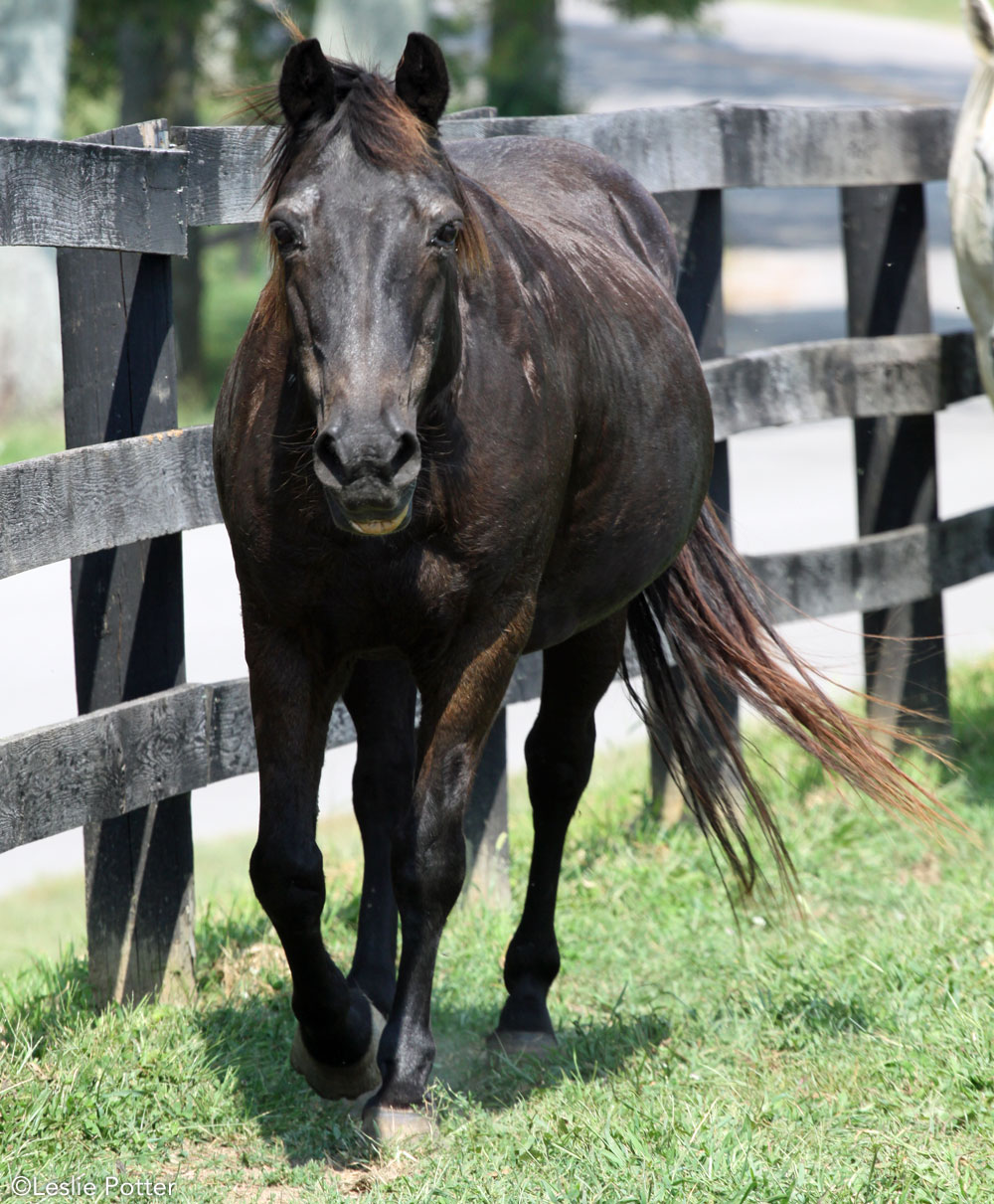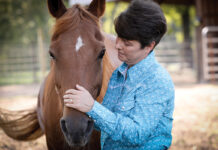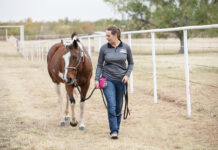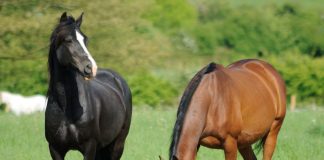Are you horse shopping? Then take a moment to consider the benefits of an older horse. Providing it’s trained, serviceably sound and of the right temperament, an older horse allows you to enjoy your time in the saddle without dealing with the unpredictable quirks and rambunctious energy of a young greenie. But before you embark on a search for a vintage equine partner, here are some shopping suggestions, including insights from an equine veterinarian.

- Ideally, find an older horse whose current job matches your goals. Then make sure he’s sound and comfortable while doing it. For example, if you want a hunter to compete over low courses, then search for an older horse that’s currently showing in that division. If your dream is to participate in some overnight horse camping trips, and ride along mountainous trails, then look for a horse that’s proven reliable and sturdy on rough terrain.
- Be wary of plucking an older horse out of retirement (or even semi-retirement) and putting him back to work. Even if you introduce him slowly to his new exercise routine, chronic conditions and whatever soundness issues forced him into retirement in the first place may crop up again.
- Pre-purchase exams are relevant, even on an older horse. Though most horse shoppers can spot an acute lameness, more subtle signs can be harder to discern. “Stumbling and tripping are usually the first manifestations of lameness in an older horse,” warns equine veterinarian Jennifer Voltz, whose practice in Riverside County, California, includes numerous senior equines. “If you’re trying out an older horse, and he repeatedly stumbles, don’t dismiss it as mere laziness. It’s often due to arthritis, which causes low-grade soreness and stiffness. As a consequence, the horse moves in short, shuffling steps, which in turn cause it to stumble.”
- If you do opt for a pre-purchase exam, be prepared for a less than perfect report. “It’s reasonable to expect a teenaged horse to have some normal signs of wear and tear,” explains Dr. Voltz. “And no horse gets to be an older teenager without acquiring some kind of injury or blemish. I take that into consideration. For instance, when I’m performing flexion tests during a pre-purchase exam, I’ll allow the older horse to take a few extra steps to trot off before I get concerned about the response.”
- Finally, spend time trying out the older horse just as you would a younger one. Some equine senior citizens, just like their human counterparts, are determinedly set in their ways, and that includes bad habits they’ve picked up over the years. Plus, don’t let those gray hairs around the muzzle fool you. Plenty of older horses have plenty of energy, and once they’re well-fed and physically fit they can intimidate beginner riders and novice handlers. “A trial period also gives you time to determine the horse’s overall
health status,” adds Dr. Voltz. “Statistically, colic is more prevalent in older horses, and so is [Recurrent Airway Obstruction]. Certainly none of us have a crystal ball and can calculate how long any horse can remain useful and rideable. But if you choose wisely and consult with your vet, you can end up having a long, rewarding relationship with an older model.”
Further Reading
Add Years to Your Senior’s Life
Riding off into the Sunset Years






Great tips. Nothing beats starting out with an old timer who knows the ropes.